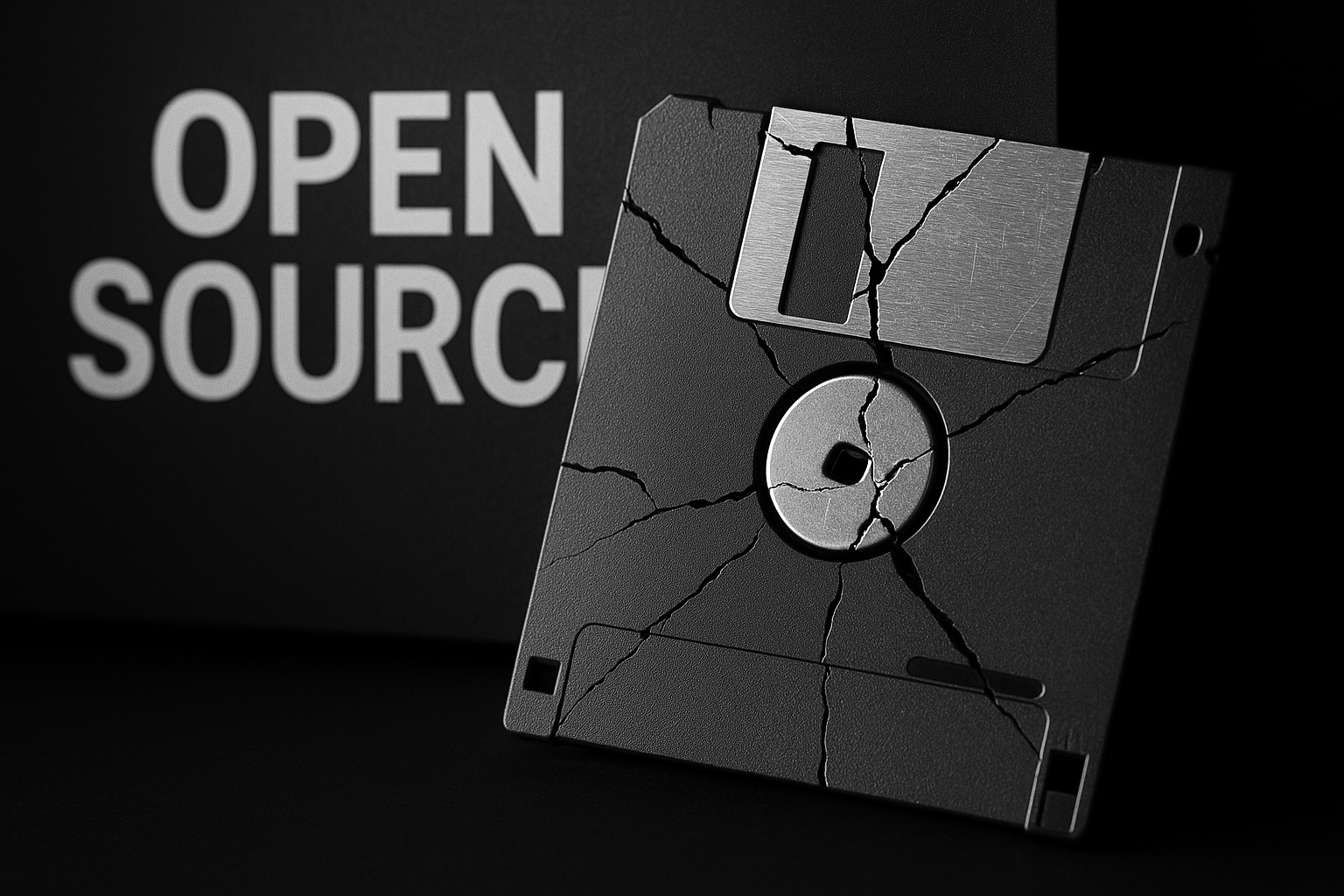
The slow death of Open Source: how corporations hijacked a revolution
by Kai Ochsen
There was a time when the words "open source" carried with them a sense of rebellion, innovation, and idealism. It wasn’t just a model of software development, it was a philosophy. A global movement driven by volunteers, hobbyists, and idealists. The goal was simple: empower everyone, break monopolies, and build a better digital world through shared knowledge and collaboration. That time is fading.
In recent years, open source has become a hollow shell of what it once represented. Today, many so-called open source projects are little more than marketing tools for companies that no longer believe in the core values that fueled the movement. The words remain, but the meaning is lost, replaced by profit-driven strategies, bait-and-switch licenses, and corporate consolidation. What happened?
The Red Hat paradox
If there’s one example that best encapsulates the slow, corporate poisoning of open source, it’s Red Hat.
Founded in the early days of Linux, Red Hat became a symbol of how open source could thrive in business without compromising its roots. The company contributed massively to the Linux kernel and ecosystem, supported developers, and offered enterprise-level solutions while keeping its core products freely available.
But in 2019, IBM acquired Red Hat for $34 billion, and the rot began. Licensing started to shift, documentation became increasingly locked behind paywalls, and the once-accessible Red Hat Enterprise Linux (RHEL) releases were quietly restricted. CentOS, the free and binary-compatible alternative to RHEL, was abruptly discontinued as a downstream clone, and later turned into a "rolling release" beta version for RHEL, alienating long-time users and developers alike.
The signal was clear: open source was no longer a priority. Vendor lock-in was back, just hidden behind the language of “community engagement.”
The OpenOffice / LibreOffice schism
Then there’s the story of OpenOffice, a once-popular open-source office suite that thrived as a counterpoint to Microsoft Office.
After Oracle acquired Sun Microsystems (OpenOffice’s former steward), development stagnated. Volunteers and contributors were ignored. Innovation slowed. Eventually, most of the developer community walked away and forked the codebase into LibreOffice, which has since flourished as the real spiritual successor.
Today, OpenOffice exists only in name, maintained by Apache with minimal updates. It's no longer a serious tool, nor a true community effort. Meanwhile, LibreOffice continues the legacy, but under constant pressure from diminishing volunteer resources and lack of mainstream support.
This was one of the first visible fractures in open source’s supposed invulnerability: a case study in how corporate neglect and community betrayal can kill a thriving project.
GitHub and the Microsoft enclosure
Microsoft buying GitHub in 2018 was, to many, a watershed moment. The very company once known for its "Linux is a cancer" rhetoric now owned the largest code-sharing platform in the world.
While Microsoft has made some positive technical contributions, many developers remain wary, and with good reason. GitHub Copilot, Microsoft’s AI-powered coding assistant, was trained on publicly available open source code… without contributors’ consent. The platform shifted from a neutral host to an active extractor of value, monetizing work that was intended to be shared, not harvested. So developers began to ask: Who benefits from open source now?
Open Source licenses turned inside out
Another tactic in the open source decay is the redefinition of what “open” means. Projects once licensed under GPL or MIT are being relicensed with Business Source License (BSL) or other “source-available” models. The code might be readable, but it’s not reusable, at least not freely. Some companies delay open-sourcing their code by years, or use dual licenses to restrict commercial use. It’s bait-and-switch: attract contributors with an “open” model, then cash in once adoption takes off.
This has become increasingly common in cloud and AI startups. They use open source for visibility and adoption, then pivot to restrict usage once the user base is large enough to monetize.
Open doesn’t mean Free (anymore)
We now live in a digital world where free software is no longer truly free, not in the ethical or practical sense. Services like Elasticsearch, Redis, and MongoDB have all walked away from traditional open source models in favor of restrictive licenses. Their justification? Big cloud providers like Amazon and Google were exploiting their code without contributing back.
It’s a valid concern, but the outcome hurts the wider community. These once-trusted tools are no longer truly open. Forks like OpenSearch try to preserve the vision, but the ecosystem is fragmenting. In the end, users are forced to choose between stagnation and corporate control.
What made open source powerful wasn’t just code, it was trust. Trust that the software you use today will still be open tomorrow. Trust that your contributions matter. Trust that you're part of something larger than a commercial product cycle. That trust is eroding. And with it, the soul of the movement that gave us Linux, Firefox, VLC, Blender, and thousands of other tools we use every day.
Can it be saved?
Not all is lost. Independent developers still build wonderful tools. Grassroots projects like Mastodon, Matrix, and LibreOffice continue to fight the good fight. Some companies, like Mozilla, Blender Foundation, and KDE, remain true to their roots, though they face constant funding and governance challenges. But the truth is clear: open source is no longer the default path to digital freedom. It's a battlefield.
The community must reclaim the narrative. Fund open initiatives. Demand license clarity. Avoid companies that use open source as a Trojan horse for enclosure. Otherwise, we may soon find ourselves living in a world where “open” means “open to exploitation”, and nothing more.